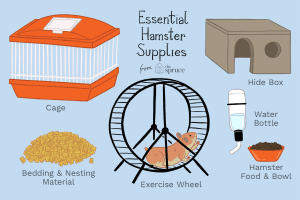Have you ever wondered about the quirky behaviors and surprising abilities of ferrets? These playful mustelids are much more than just cute, furry creatures. The Secret Life of Ferrets: Fun Facts You Didn’t Know delves into the fascinating world of these enigmatic animals, uncovering hidden truths about their social structures, hunting techniques, and unique adaptations. In this comprehensive guide, we’ll explore their playful personalities, surprisingly complex social lives, and remarkable survival instincts, revealing why they are so captivating to animal lovers and scientists alike. Get ready to be amazed by what you learn!
Ferrets possess a slender, elongated body ideally suited for navigating burrows and squeezing into tight spaces. Their long, flexible bodies, short legs, and powerful muscles enable them to move with surprising agility and speed. Their dark, expressive eyes and
long, slender necks contribute to their charming appearance. Their sharp teeth and strong jaws are perfect for their carnivorous diet.
Internal Anatomy and Digestive System
Ferrets are obligate carnivores, meaning their digestive system is specifically adapted to process meat. Their short digestive tracts are not well-equipped to digest plant matter, which can lead to health problems if ingested. Understanding their digestive system is crucial for providing them with a proper diet, avoiding potential issues.
Scent Glands and Communication
Ferrets have anal scent glands that they use for marking territory and communicating with other ferrets. The scent is strong and musky, playing a significant role in their social interactions. This scent-marking behavior is essential for establishing dominance hierarchies and identifying individuals within a group.
Ferret Behavior: Play, Sleep, and Social Dynamics
Playful Personalities and Activities
Ferrets are known for their playful and mischievous personalities. They are naturally curious animals, always exploring their surroundings and engaging in playful activities like chasing toys, wrestling with each other, or simply enjoying a good nap in a sunbeam. Their playful nature is essential for their physical and mental well-being.
Sleep Patterns and Habits
Ferrets are crepuscular animals, meaning they are most active during dawn and dusk. They spend a significant portion of their day sleeping, often in dark, secluded locations. Their sleep cycles are unique, featuring multiple periods of deep sleep interspersed with short periods of wakefulness.
Social Structures and Interactions
Ferrets are social animals, and their social interactions are complex. They live in groups called mobs, which can range from a few individuals to several dozen. Within these mobs, there is often a clear dominance hierarchy, with dominant ferrets having preferential access to resources and mating opportunities. Understanding their social dynamics is crucial for providing appropriate housing and companionship.
Ferret Senses and Hunting Techniques
Exceptional Sense of Smell
Ferrets possess an exceptionally well-developed sense of smell, which they use to locate prey, navigate their environment, and communicate with other ferrets. Their olfactory system is incredibly sensitive, allowing them to detect even faint scents over long distances. This keen sense of smell is critical to their survival.
Sharp Vision and Hearing
While their sense of smell is dominant, ferrets also have excellent vision and hearing. Their eyes are positioned laterally, providing a wide field of vision, helpful for spotting prey and predators. Their hearing is also quite acute, allowing them to detect the slightest sounds.
Hunting Strategies and Prey
Ferrets are skilled hunters, utilizing their combination of senses and agility to capture prey. They are ambush predators, patiently waiting for an opportunity to strike. Their prey typically consists of small mammals, such as rabbits, mice, and rats. They are also known to hunt birds and other small animals.
Ferret Diet and Nutrition
Obligate Carnivores: Dietary Needs
As obligate carnivores, ferrets require a diet high in animal protein and fat. Their digestive system is not equipped to process plant matter efficiently. An improper diet can lead to serious health problems. Commercial ferret foods are usually formulated to meet their specific nutritional needs.
Essential Nutrients and Supplements
Ferrets require specific nutrients, including taurine, essential fatty acids, and various vitamins and minerals. Sometimes, supplements may be necessary to ensure they receive all the nutrients needed for optimal health. A balanced diet is critical for their growth, development, and overall well-being.
Common Dietary Mistakes and Solutions
Many common mistakes in ferret feeding can arise from misunderstandings of their dietary needs. Feeding them inappropriate foods like fruits, vegetables, or excessive carbohydrates can lead to digestive issues, nutritional deficiencies, and even death. Consulting with a veterinarian or experienced ferret owner is crucial for correct feeding.
Ferret Health and Common Illnesses
Common Health Concerns
Ferrets are prone to certain health problems, including insulinoma, adrenal disease, and intestinal problems. Regular veterinary checkups are essential for early detection and treatment of these conditions. Early intervention is critical for maximizing their chances of a healthy life.
Preventing Common Diseases
Proper nutrition, regular exercise, and a clean environment contribute significantly to preventing many common ferret illnesses. Vaccination against common diseases is also recommended by vets. Providing a stimulating environment minimizes stress, reducing susceptibility to disease.
Recognizing Symptoms and Seeking Veterinary Care
Recognizing the signs of illness in ferrets can be crucial for their survival. Changes in behavior, appetite, or energy levels could indicate underlying health problems. Immediate veterinary attention is necessary if you notice any concerning symptoms.
Ferret Housing and Enrichment
Choosing the Right Cage
Providing a suitable habitat is critical for ferrets’ well-being. The cage should be large enough to allow for movement, exploration, and play. It should also include safe sleeping areas, food and water bowls, and litter boxes. The size is a major consideration.
Enrichment and Mental Stimulation
Ferrets need plenty of mental and physical stimulation to prevent boredom and behavioral problems. Enrichment activities include providing toys, tunnels, and puzzle feeders to challenge them and keep them engaged. Interactive play is essential.
Cleaning and Hygiene
Maintaining a clean cage is essential for preventing disease and ensuring your ferret’s health. Regular cage cleaning, including spot-cleaning and complete cage changes, is necessary to eliminate waste and prevent the accumulation of bacteria.
Ferrets and Their Interactions with Humans
Handling and Taming
Proper handling is crucial to establish trust and build a positive relationship with your ferret. Gentle handling and positive reinforcement techniques can help tame a ferret and make interactions enjoyable for both you and your pet.
Training Ferrets
Although not easily house-trained like dogs, ferrets can be trained to perform simple commands using positive reinforcement methods. Patience and consistency are key. Reward-based training is generally effective.
Common Behavioral Problems and Solutions
Ferrets can exhibit certain behavioral problems, such as biting, excessive digging, or scent marking. Understanding the underlying causes and employing appropriate behavioral modification techniques can address these issues.
Choosing a Ferret: Adoption vs. Breeders
Adopting a Ferret
Adopting a ferret from a rescue organization or shelter is a rewarding way to provide a loving home for a deserving animal. Shelters often have ferrets of various ages and temperaments, ensuring you find a suitable companion.
Finding a Reputable Breeder
If you choose to purchase a ferret from a breeder, it is crucial to find a reputable source that prioritizes the health and well-being of their animals. Reputable breeders prioritize proper care, genetic health, and responsible breeding practices.
Ferret Legal and Ethical Considerations
Ferret Laws and Regulations
Ferret ownership laws vary significantly across different regions. Some areas may restrict or prohibit ferret ownership altogether. Before getting a ferret, it is vital to understand the local laws and regulations.
Ethical Concerns Regarding Ferret Ownership
Responsible ferret ownership involves understanding the animal’s needs and providing for them appropriately. This includes providing a suitable environment, a proper diet, and veterinary care. Ethical ownership avoids exploitation and prioritizes the animal’s welfare.
The Costs of Ferret Ownership
Initial Costs
The initial costs of getting a ferret can include purchasing the animal, providing a suitable cage, buying food and supplies, and paying for a initial vet checkup. Understanding these costs is a critical part of responsible ownership.
Ongoing Costs
Ongoing costs include the cost of food, bedding, veterinary care, toys, and other necessary supplies. These costs can vary based on the ferret’s health, needs, and any unexpected vet visits.
Frequently Asked Questions
What is the average lifespan of a ferret?
The average lifespan of a ferret is 5-10 years, but with proper care and regular veterinary checkups, some ferrets can live even longer.
Are ferrets good pets for children?
Ferrets can make good pets for children, but supervision is crucial. Children must be taught how to handle ferrets gently and respectfully to avoid injury to both the child and the ferret.
Do ferrets require a lot of attention?
Ferrets require a moderate amount of attention. They need daily interaction, playtime, and cage cleaning. They’re not as demanding as dogs but still require daily care.
Can ferrets be litter-trained?
Yes, ferrets can be litter-trained with patience and consistency. Using a designated litter box and consistent reinforcement can help your ferret learn to use the box effectively.
Are ferrets prone to any specific health issues?
Yes, ferrets are prone to certain health issues, such as insulinoma, adrenal disease, and intestinal problems. Regular veterinary checkups are crucial for early detection and treatment.
Final Thoughts
The secret life of ferrets is filled with captivating behaviors, surprising adaptations, and unique characteristics. From their playful personalities to their complex social structures and remarkable hunting abilities, these animals continually fascinate both amateur and expert enthusiasts. Understanding their specific needs – dietary requirements, environmental enrichment, and healthcare – is crucial for ensuring their well-being. This comprehensive guide has hopefully shed light on the fascinating world of ferrets and provided you with a wealth of knowledge to responsibly care for and appreciate these remarkable creatures. Whether you are considering adopting a ferret or simply deepening your understanding of these intriguing animals, remember that responsible ownership is key to fostering a happy and healthy relationship. Start your journey into the world of ferret ownership with confidence and enjoy the unique companionship of these captivating creatures.




